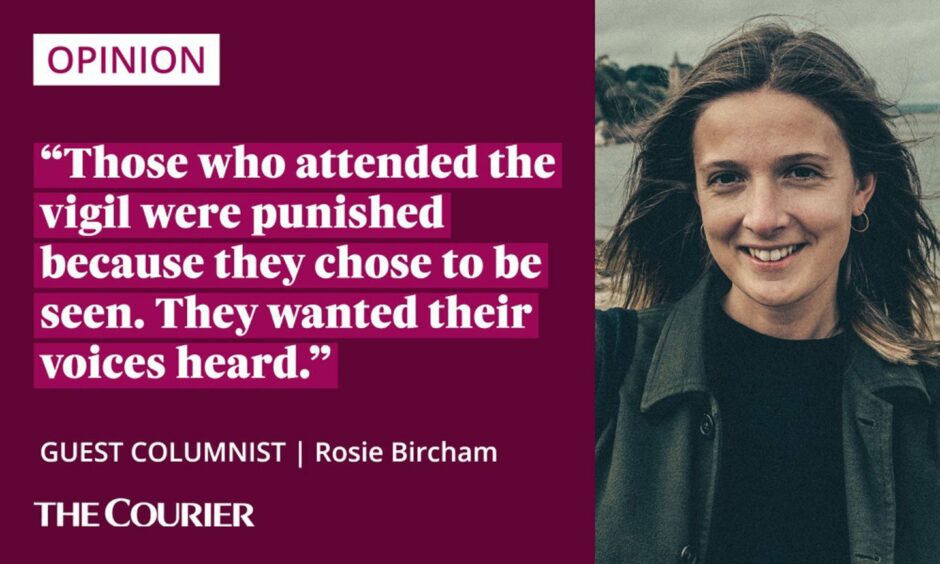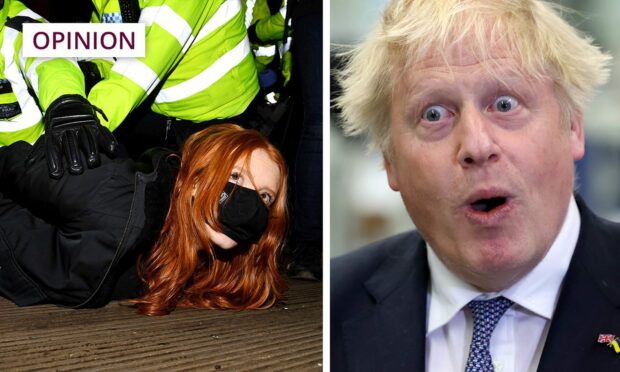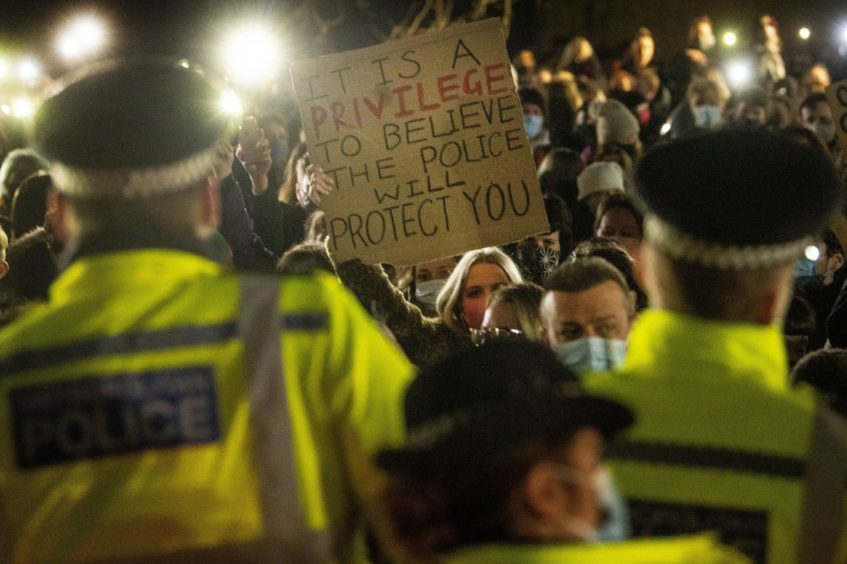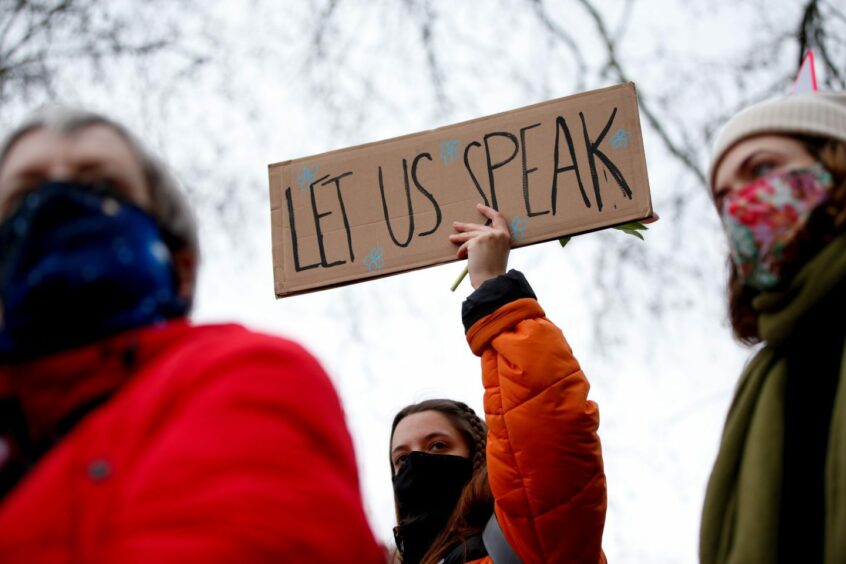It came as no shock to me when I read that the Met Police had charged six people for allegedly breaking Covid rules at a Sarah Everard vigil last year.
It’s awful – but utterly unsurprising. Yet another damning piece of proof that we live in a nation of dangerous and sinister double standards.
The police force which charged these individuals is, of course, the same police force whose officer murdered Everard.
And it’s the same police force which delayed the publication of the damning Sue Gray report in order to hand out a mere scattering of fines for government parties which were so crammed that people sat on each other’s laps.
Three stories that reveal a rotten core.

It’s important that we talk about the sheer injustice here.
Women still continue to live in fear of sexual violence every day.
But talking about it also keeps the behaviour of Boris Johnson in the public eye.
Because let’s not forget that Johnson and his cronies flouted the exact rules for which the vigil-goers were charged.
Public or privileged – a tale of two pandemics
During the pandemic, Johnston got to keep his privacy.
It’s a privilege he has enjoyed since he was cloistered in public schools from childhood, and then in the quads of Oxford.
When Johnson was a key Bullingdon Club member, they wrecked their OWN college hall one night.
Smashed priceless wood panelling right off the walls. Broke every stick of furniture. Flooded the room for good measure.
Left the debris piled up in the middle of the room. pic.twitter.com/lB1B2xevLA— Dr Louise Raw (@LouiseRawAuthor) May 25, 2022
A life spent protected and insulated. But most importantly – separate.
It was behind the firmly closed doors of 10 Downing Street that the parties were able to rage, without fear of consequences.
And importantly without the fear that the rest of us were living with.
During my lockdown I was terrified of taking my dog out in the dead of night in case the neighbours thought I was going beyond my exercise allocation.
I remember sweating when police cars drove near me in case they thought I was out of my council area.
The UK Government built its Covid strategy on cold, hard fear. Punishments, fines, public shaming – all in the hands of the police.
This is what kept us inside during the pandemic. It certainly wasn’t hitting pans with spoons once a week.
And this corrosive, penetrating atmosphere set the backdrop for murder.
Truth flourishes in the light
Sarah Everard was raped and strangled by a Metropolitan Police Officer, who was able to do so because he arrested her on claims that she was breaking Covid regulations.
Which brings us, in the darkest irony, back round to Partygate.
Those in power were safe behind closed doors.
But Partygate has ripped a gaping tear in the private sanctity of publicly owned and funded Westminster.
When it came to Partygate, the police had Johnson’s back. Here’s how: pic.twitter.com/iVbAsrnT1P
— Led By Donkeys (@ByDonkeys) June 2, 2022
The lights have been turned on and we see it pale and exposed, in blurry illicit iPhone photos.
And forcing a dark private world public is a fantastic thing.
It’s what drove the women who refused to let Prince Andrew go quietly.
It’s the thinking behind Police Scotland’s incredibly successful That Guy campaign, which seeks to highlight the dangerous male behaviour that lies hidden in our society.
And it’s actions like this that can bring about change, not silencing protests and charging mourners.
Those who attended the vigil were punished because they chose to be seen.
They wanted their voices heard.
They wanted Sarah Everard to be remembered.
If we can force wrongdoers – like Johnson, like Prince Andrew – out of their hiding places and into the light then we might start to see a safer world, not just for women, but for all of us.
Rosie Bircham is a blogger and teacher living in the north east of Scotland.













Conversation